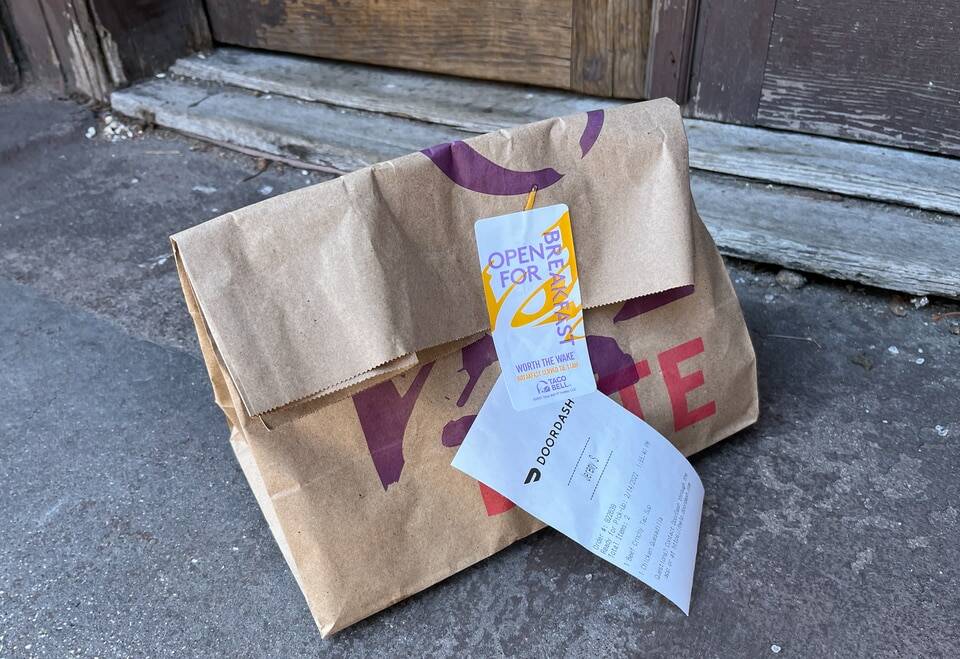As gas prices are on the rise locally, the food delivery company DoorDash has formed a Washington advisory group for its drivers.
The Washington Dasher Advisory Group launched March 22 as an advocacy group of delivery workers across the state. Like Uber and Lyft, DoorDash partners with drivers who are independent contractors.
There are 12 members in the advisory group, two of whom are from Vancouver. The goal of the group is to help guide the company’s statewide policies.
Some of the top issues facing drivers at the first meeting of the group were gas prices and driver safety.
There’s currently a petition circulating by a Longview-based DoorDash driver asking the company to raise base rate prices, in part because of rising gas prices.
“Dashers are currently receiving orders that don’t cover the cost of a gallon of gas; and to make things worse, the platform is hiding Dashers tips, as well,” wrote Gennifer Hayes in an email to The Columbian. A Dasher is what DoorDash calls its drivers.
In her petition, the driver said she’d never received more than $2.50 in base pay, which combined with tips, barely covered her gas. Base pay can fluctuate from $2 to $10 per order, depending on the size of the order is and how far it needs to be taken. Tips aren’t usually shown until the order is completed.
Hayes’ petition has collected more than 40,000 signatures.
Bryan Rodriguez, a Dasher from the Tacoma area, has been making the same amount of money that he made before gas prices rose. That’s due in part to DoorDash giving 10 percent cash back when buying his gas using the company’s debit card for drivers, DasherDirect. The company is also offering bonuses for drivers who drive more than 100 miles a week.
“The decision to enact these programs, like gas discounts on the cash-back incentives, were really designed with feedback from Dashers in mind,” said Mariah Ray, head of strategic partnerships and innovation policy at DoorDash.
Ray praised her company for quickly engaging with drivers and considering thoughtfully how to address it.
“That feedback led to action that was taken that actually ended up benefiting the Dasher,” Ray said.
It’s exactly the kind of issue that the company hopes the advisory group could solve.
“It’s a breath of fresh air to actually see a company implement the DoorDash advisory group, implement cash back and think about the guys who are out there making the customer experience even that much better,” Rodriguez said.
DoorDash has employed millions of drivers and has had multiple national Dasher advisory groups.
“We know that from a national level, it’s really important to engage and develop as close to a unified and representative voice for Dashers as we can,” Ray said.
Still, the company has continued to grow, as have conversations around their policies and programs being localized.
“We realize that having a more local picture of what Dashers care about and being able to engage with Dashers locally was really important,” Ray said.
On top of that, some markets, like Washington, are diverse in themselves. Issues affecting drivers in Seattle may not be the same as those in Spokane, and neither might be the same as those affecting drivers here in Clark County.
The group, which includes members from every region in the state, will meet monthly for six months. The effort is being led by the company to hear directly from drivers about concerns affecting them.


